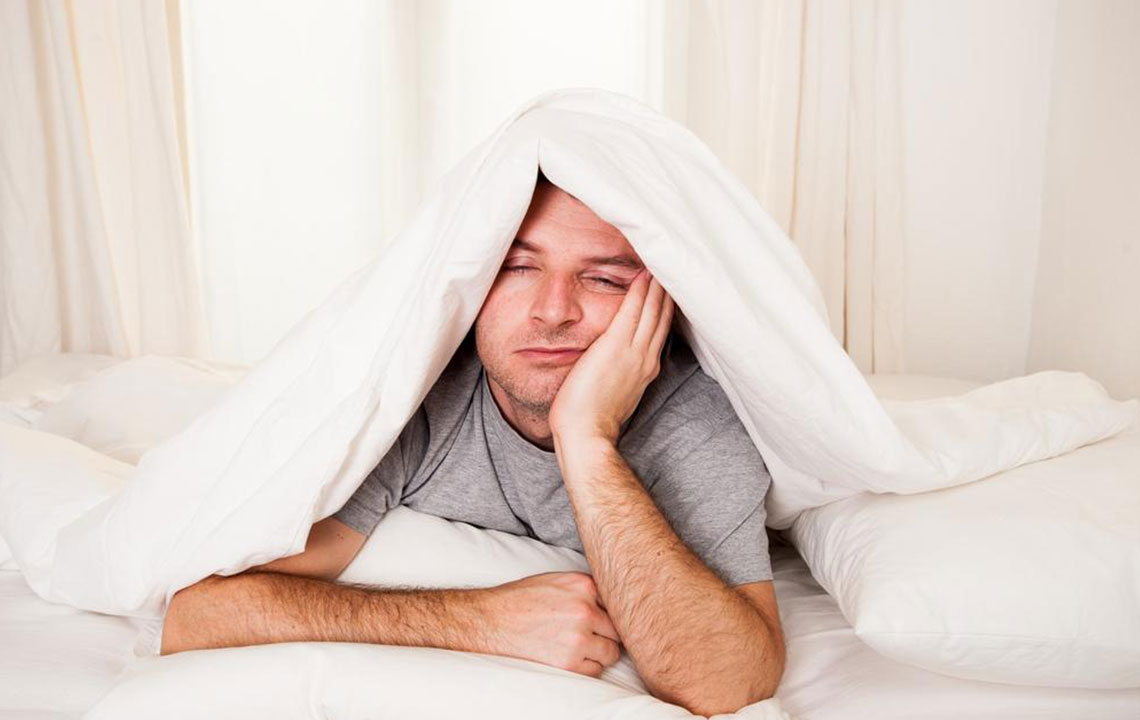Symptoms and Remedies for Sleep Apnea

Sleep apnea is quite a common sleeping disorder these days. If you experience poor quality of sleep, it might be due to sleep apnea. This disorder causes oxygen deficiency in the body due to uncontrollable pauses while breathing and shallow or short breaths during sleep. Sleep apnea often causes one to wake up startled.
Common Symptoms of Sleep Apnea
A person with sleep apnea, usually stops breathing every now and then, during the night’s sleep. Sleep apnea may stop one’s breathing for as many as thirty times in an hour. This sleeping disorder may also cause a person to stop breathing for very brief moments, even without them being aware of it.
People who experience sleep apnea are triggered to wake up suddenly and gasp for air. Once they wake up startled, the body desperately tries to reopen the airways, to make up for the deficiency of oxygen.
The irregular breathing process associated with sleep apnea may result in symptoms such as loud snoring, disturbed sleep, fatigue, choking during sleep and anxiety. For these symptoms, there are various remedies for sleep apnea which one can consider.
Risks Associated with Sleep Apnea
Sleep apnea is not just a problem of heavy snoring. It is a serious medical condition and requires immediate attention. One need to immediately consult a doctor to find remedies for sleep apnea.
Long-term health issues associated with sleep apnea include a risk of heart disease, diabetes, stroke, obesity, short-term memory loss and sexual dysfunction. Interrupted sleep has also time and again been associated with accidents while driving, low performance in academics and work, high vulnerability to common cold and flu and low body resilience.
Follow these Natural Remedies for Sleep Apnea
Maintain a healthy weight and good health
One of the most common and effective remedies for sleep apnea is exercising and eating healthy. Weight gain is known to increase risks of sleep apnea because obesity makes one gain weight on the inside of the neck. This, in turn, affects the throat muscles and downgrades one’s breathing capabilities.
If you’re overweight and are suffering from this sleeping disorder, a common remedy for sleep apnea is to lose around ten percent of your body weight. Doing so can help prevent the airways from collapsing, by reducing inflammation around your throat muscles.
Regular exercise and a healthy diet serve as effective remedies! Eat a diet rich in fiber that includes fresh vegetables and fruits, seeds, sprouts and legumes, nuts and whole grains.
Consume healthy fats and food items rich in protein. You may also eat herbs, and use essential oils such as grapefruit, ginger and cinnamon oil.
Avoid excessive smoking, alcohol, and sedatives
Alcohol is known to interfere with the quality of sleep, by disturbing the uvula and the palate which are needed to control and regularize breathing. Smoking and alcohol may also result in inflammation and cause retention of fluid, in the respiratory system.
Be careful while taking sedatives. Sleeping pills available over-the-counter, prescribed tranquilizers and certain sedatives may have similar effects. These harmful agents exaggerate sleep apnea symptoms and cause grogginess in the daytime.
Don’t leave cough, nasal congestion and acid reflux untreated
Many people who suffer from sleep apnea or heavy snoring, have certain other medical conditions which interfere with regular breathing. These conditions include acid reflux, also known as heartburn, nasal congestion, and chronic cough.
If you develop a nasal congestion, you must work towards treating it immediately. Congestion causes difficulty in breathing through the nose and may worsen the symptoms of sleep apnea. Take vapor to treat nasal congestion and prevent it from contributing to sleep apnea. These conditions need to be curbed, and one has to find remedies for such disorders and sleep apnea.
If you suffer from esophageal reflux, the acid might make its way to the throat and the voice box, thus causing irritation and inflammation of the throat muscles. Coughs interrupt sleep by irritating the airways and increases snoring.
Eat a healthy diet and reduce your exposure to allergens. You may raise your head while sleeping, to reduce congestion and acid reflux.
Get a humidifier for your bedroom
You may consider humidifying your bedroom in order to relieve the symptoms of sleep apnea. Sleeping in a room with a humidifier helps decrease snoring, lessens congestion and makes breathing clearer and easier.
Adjust your sleeping position by elevating your head. This will help reduce snoring, thus relieving some of the discomfort caused by sleep apnea. Research suggests that the best sleeping position is on your side, with a pillow under your head.
If you experience the symptoms of sleep apnea, you should rub natural oils such as eucalyptus oil on your chest before going to sleep. Essential oils help open your airways naturally and also soothes a nasal block or a stuffy throat.
Follow these natural remedies for sleep apnea to ease the symptoms of this sleeping disorder. Eat healthy, exercise and follow good sleeping habits in order to prevent sleep apnea. Consult your physician, if the problem persists.


